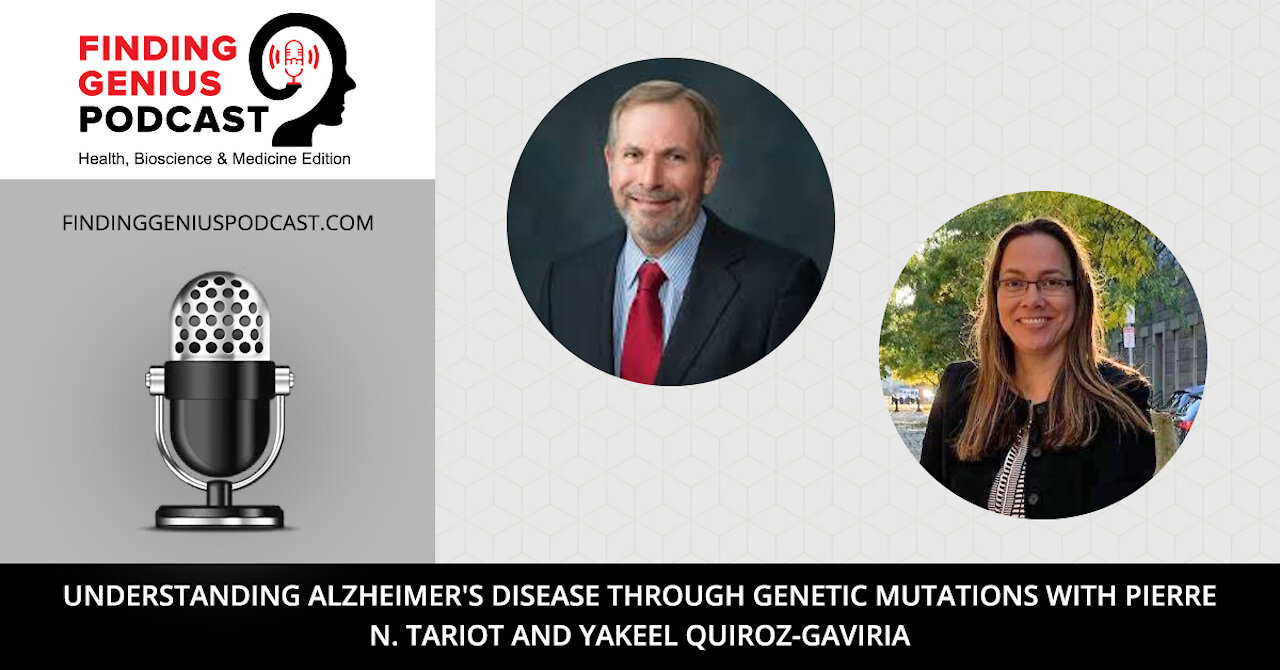Premium Only Content

Understanding Alzheimer's Disease Through Genetic Mutations
How can specific clusters of individuals in populations in certain parts of the world further dementia research worldwide? New research shows that mutations present in younger group members can help prevent the early onset of symptoms.
Listen up to learn:
The specific mutation that causes a high concentration of early-onset dementia
If regional diets can play a role in the onset of Alzheimer's Disease
How the level of risk can be calculated based on the presence of genes
Pierre N. Tariot, director of Banner Alzheimer's Institute, and Yakeel Quiroz-Gaviria, associate professor of psychology at Harvard University, share their work with genetic mutations that affect the onset of dementia.
Due to a lack of understanding previously present in the communities where the genetic mutations have been present, research is only now uncovering the mysteries behind the cluster of high-density cases. Whether it be diet or other outside factors at play, the genetic mutations caused can shed light on the factors that may lead to Alzheimer's Disease or early-onset Dementia.
With a new understanding of family history, variants of genes can be tracked to determine the likelihood individuals will be at risk throughout their lives. If the genetic line is interrupted by introducing outside genes, the likelihood may go down, but the gene mutation will remain present.
Visit https://www.beingpatient.com, https://mapp.mgh.harvard.edu, or https://www.banneralz.org for more information.
Episode also available on Apple Podcasts: apple.co/30PvU9C
-
 41:53
41:53
FGP
8 days ago🌟 🎙️ TALK Like A Pro: Mastering Conversation with Alison Wood Brooks ✨
13 -
 2:57
2:57
Reuters Innovation
3 years agoUnderstanding sperm whales through AI
57 -
 2:34
2:34
KJRH
4 years agoFighting through sickle cell disease
361 -
 7:21
7:21
WTMJMilwaukee
4 years agoUnderstanding Lyme Disease
89 -
 1:58
1:58
WFTS
4 years agoMother who lost 5-month-old son to rare genetic disease walks for a cure
35 -
 2:07
2:07
WEWS
4 years agoUnsuspecting Wadsworth woman finds close relatives through genetic testing
10 -
 5:21
5:21
KTNV
3 years agoUnderstanding Probate
74 -
 0:55
0:55
STLNutritionDoc
3 years agoPushing through
3151 -
 1:44
1:44
AbsoluteAsset
3 years agoAAP Better Understanding
65 -
 1:23:44
1:23:44
Space Ice
8 hours agoSpace Ice & Redeye: Van Damme's The Quest: Pirates, Clowns, James Bond & Bloodsport
28.6K2